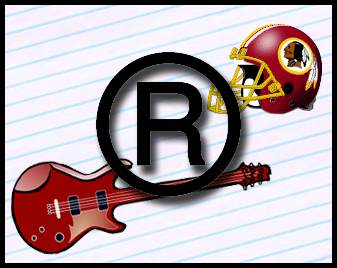
The recently passed CARES EXTENSION ACT made several important changes to procedures in the Trademark Office and in federal court. While some are favorable to trademark owners, others are meant to clear the Trademark Register of deadwood registrations that are not being used.
Among other things, the new law establishes procedures to expunge the register of marks that have never been used for the goods and services listed (a growing problem with foreign-based registrations); a new basis for cancellation (the mark was never used for some or all of the listed goods and services); a procedure to provide information on a pending application that would be a basis for denial; and restoration of a presumption that trademark infringement creates irreparable harm.
The new law has several different features, not all of which are related. It not only presents opportunities for both trademark owners and potential trademark infringers, but also presents new challenges and potential pitfalls.
Presumption of Irreparable Harm – Federal courts traditionally presumed that a showing of likelihood of confusion also meant that irreparable harm, a requirement for a preliminary or permanent injunction, should be presumed. This is because the harm from infringement – confusion as to who makes the goods, and likely affect on good will – are difficult to quantify, and thus do not lend themselves to money damages.
But in a patent case eBay v. MercExchange (2006) the Supreme Court held that there is no presumption of irreparable harm. Many courts applied that in trademark and copyright cases to mean that there is no presumption of irreparable harm as well. The new law restores the presumption for trademark cases.
The new law will not likely have a major effect on litigation. In the vast majority of cases, trademark owners have been able to show irreparable harm without a presumption.
But what trademark owners must be wary of is delay. The presumption of irreparable harm is rebuttable. Before eBay, one of the most common ways to rebut the presumption was to show the trademark owner delayed. This is particularly the case for preliminary injunctions; in one often cited Second Circuit case, a delay of only six weeks was enough to rebut the presumption. So if a trademark owner wants an injunction, it should move quickly to stop the problem.
Expungement Procedures -- The new law creates two ex parte expungement procedures, one directed to domestic registrations, the other to registrations based on foreign registrations. Both allow any party to submit a petition to expunge a registration, along with evidence that the mark has never been used in commerce. The Director of the Trademark Office reviews the petition, and if warranted, initiates a procedure, on notice to the trademark owner, that the registration may be cancelled.
This addresses a problem that has arisen in recent years involving fictitious registrations for marks that are never actually used. Many such registrations have been obtained by foreign registrants, particularly from China and India. The motivation seems to be Amazon, which requires a trademark registration in order to register as a merchant.
Parties who actively sell on Amazon often encounter such registrations as blocking their names, and the new procedures will be a way to expeditiously deal with the problem.
Third Party Submissions In Pending Applications
The new law also formalizes what previously was called a letter of protest. If there is a pending application, anyone may submit evidence relevant to a possible refusal. The Director reviews it, and can include it in the examination file.
This can be an efficient and inexpensive way to oppose pending applications, without the expense and time of a formal opposition or cancellation procedure before the TTAB. This is a good reason why trademark owners should use a monitoring service to be alerted to pending applications that may come too close to their trademarks.
Non-Use As A New Basis For Cancellation
The new law enacts a new basis for cancellation. At any time after three years after registration, if one can show that the mark has never been used in commerce for all or even some of the listed goods, the registration is cancelled. Unlike abandonment, intent is not a defense – no matter the owner's intent, if the mark has never been used, the registration can be cancelled.
This new section is a potential landmine for foreign registrations. It is common practice in Europe to register for dozens or even hundreds of goods and services, intending to use the mark for only a few. These registrations are then used to obtain U.S. registrations under either Section 44 of the Trademark Act or through the Madrid Protocol. But the owner only uses the mark for a few of the listed goods and services.
Under this new basis for cancellation, the entire registration could be cancelled in that circumstance. So foreign registrants must carefully consider the scope of their registrations, and omit any goods and services they do not intend to use.
Among other things, the new law establishes procedures to expunge the register of marks that have never been used for the goods and services listed (a growing problem with foreign-based registrations); a new basis for cancellation (the mark was never used for some or all of the listed goods and services); a procedure to provide information on a pending application that would be a basis for denial; and restoration of a presumption that trademark infringement creates irreparable harm.
The new law has several different features, not all of which are related. It not only presents opportunities for both trademark owners and potential trademark infringers, but also presents new challenges and potential pitfalls.
Presumption of Irreparable Harm – Federal courts traditionally presumed that a showing of likelihood of confusion also meant that irreparable harm, a requirement for a preliminary or permanent injunction, should be presumed. This is because the harm from infringement – confusion as to who makes the goods, and likely affect on good will – are difficult to quantify, and thus do not lend themselves to money damages.
But in a patent case eBay v. MercExchange (2006) the Supreme Court held that there is no presumption of irreparable harm. Many courts applied that in trademark and copyright cases to mean that there is no presumption of irreparable harm as well. The new law restores the presumption for trademark cases.
The new law will not likely have a major effect on litigation. In the vast majority of cases, trademark owners have been able to show irreparable harm without a presumption.
But what trademark owners must be wary of is delay. The presumption of irreparable harm is rebuttable. Before eBay, one of the most common ways to rebut the presumption was to show the trademark owner delayed. This is particularly the case for preliminary injunctions; in one often cited Second Circuit case, a delay of only six weeks was enough to rebut the presumption. So if a trademark owner wants an injunction, it should move quickly to stop the problem.
Expungement Procedures -- The new law creates two ex parte expungement procedures, one directed to domestic registrations, the other to registrations based on foreign registrations. Both allow any party to submit a petition to expunge a registration, along with evidence that the mark has never been used in commerce. The Director of the Trademark Office reviews the petition, and if warranted, initiates a procedure, on notice to the trademark owner, that the registration may be cancelled.
This addresses a problem that has arisen in recent years involving fictitious registrations for marks that are never actually used. Many such registrations have been obtained by foreign registrants, particularly from China and India. The motivation seems to be Amazon, which requires a trademark registration in order to register as a merchant.
Parties who actively sell on Amazon often encounter such registrations as blocking their names, and the new procedures will be a way to expeditiously deal with the problem.
Third Party Submissions In Pending Applications
The new law also formalizes what previously was called a letter of protest. If there is a pending application, anyone may submit evidence relevant to a possible refusal. The Director reviews it, and can include it in the examination file.
This can be an efficient and inexpensive way to oppose pending applications, without the expense and time of a formal opposition or cancellation procedure before the TTAB. This is a good reason why trademark owners should use a monitoring service to be alerted to pending applications that may come too close to their trademarks.
Non-Use As A New Basis For Cancellation
The new law enacts a new basis for cancellation. At any time after three years after registration, if one can show that the mark has never been used in commerce for all or even some of the listed goods, the registration is cancelled. Unlike abandonment, intent is not a defense – no matter the owner's intent, if the mark has never been used, the registration can be cancelled.
This new section is a potential landmine for foreign registrations. It is common practice in Europe to register for dozens or even hundreds of goods and services, intending to use the mark for only a few. These registrations are then used to obtain U.S. registrations under either Section 44 of the Trademark Act or through the Madrid Protocol. But the owner only uses the mark for a few of the listed goods and services.
Under this new basis for cancellation, the entire registration could be cancelled in that circumstance. So foreign registrants must carefully consider the scope of their registrations, and omit any goods and services they do not intend to use.




